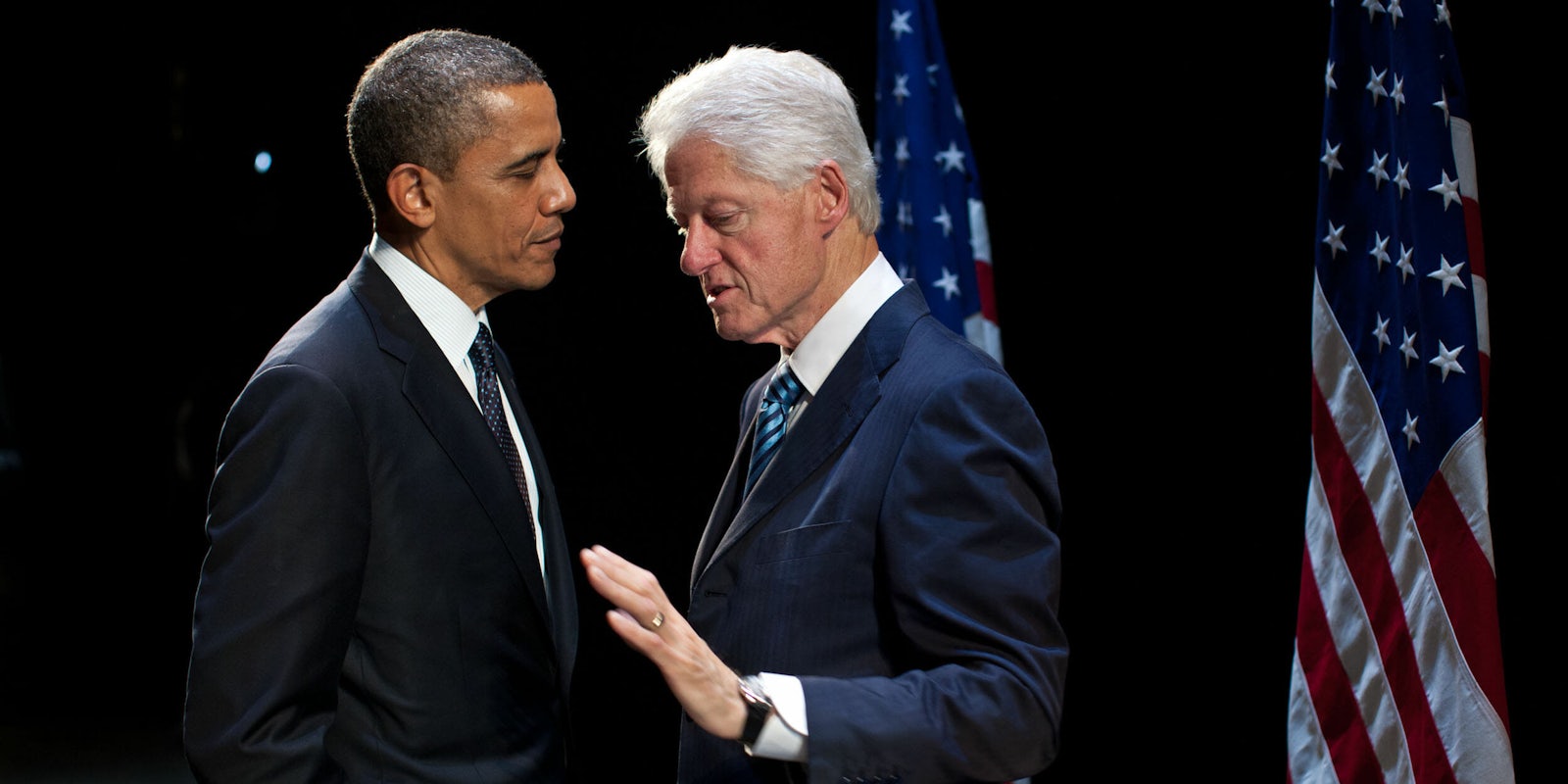President Donald Trump’s decision to order a United States military airstrike in Syria late Thursday has resurrected a decades-old argument over whether the U.S. president requires congressional approval before intervening militarily in a foreign state.
Trump authorized the strikes in direct retaliation for a chemical weapons attack carried out earlier this week. The U.S. launched 59 Tomahawk missiles from two U.S. destroyers in the Eastern Mediterranean, striking the Shayrat airbase in the Western Syrian city of Homs. Among the targets were aircraft, munitions, and air defense systems.
More than two dozen members of Congress, including House Speaker Paul Ryan (R-Wisc.), were briefed shortly before the attack. The White House argues that Trump’s unilateral authority stems from Article II of the Constitution, which establishes the U.S. president as commander and chief of U.S. military forces. And while Article I gives Congress the sole authority to declare war, there are numerous historical examples of U.S. presidents bypassing this requirement with little repercussion.
The most notable examples are the undeclared wars in Korea and Vietnam, both of which were referred to as a “police action” to avoid a declaration of war.
Big moment just now at the UN…
— Amanda Wills (@AmandaWills) April 7, 2017
Nikki Haley: The US “took a measured step last night. We are prepared to do more” https://t.co/3WJrNBHesj
Many U.S. lawmakers, speaking in defense of Trump, have pointed to President Ronald Reagan, who conducted airstrikes in Tripoli and Benghazi in 1986 (without congressional approval) following the bombing of La Belle discotheque in West Berlin—a terrorist attack attributed to the Libyan government. To nobody’s surprise, Senate Majority Leader Mitch McConnell (R-Ky.) on Friday said the Syrian airstrikes were “maybe akin to what Reagan did to [Libyan leader Muammar Gaddafi] back in ‘86.”
Trump likely has some legal headway to intervene in Syria, if the argument holds that Syrian President Bashar al-Assad’s alleged use of chemical weapons threatens U.S. interests. The War Powers Resolution (WPR)—passed by Congress in 1973, overriding President Richard Nixon’s veto—gives the executive branch a certain amount of room to engage militarily without congressional approval.
While intended to provide a check against U.S. presidents who engage American troops in armed conflict, the WPR—often called the “War Powers Act”—grants presidents the ability to deploy American military forces for up to 60 days without congressional authorization, a time limit that can be extended by an additional 30 days at the president’s request. The president is required, however, to notify Congress of any military deployment within 48 hours, a stipulation already met by Trump.
Even if Trump were to exceed the so-called “sixty-day clock,” there’s little chance he’d be censured by the Republican-controlled Congress. The Obama administration was accused of violating the WPR in 2011 due its participation in NATO airstrikes in Libya which continued beyond the 60-day deadline. Previous presidents, including Bill Clinton (in Somalia), have ignored provisions of the WPR, which state congressional approval is required except when the U.S. is under attack. In these cases, the fallout was mostly political and short-lived.
After inauguration, President Trump continued the Obama administration’s airstrikes in Syria targeting ISIS fighters, strikes President Barack Obama argued were approved by war authorization passed by Congress following the Sept. 11, 2001, terrorist attacks—also known as the Authorization for Use of Military Force (AUMF). (In September, a U.S.-led coalition mistakenly hit Assad forces during an air raid, believing them to be ISIS fighters—the first known direct attack by the United States against the Syrian regime.) But as some have correctly pointed out, the U.S. attack intentionally targeting the Assad regime is incredibly different than those which sought to “degrade and destroy” ISIS fighters in Iraq and Syria.
In 2014, nearly 100 Republican lawmakers (and at least 18 Democrats) signed a letter demanding President Obama seek congressional authorization before engaging Syrian targets following the use of chemical weapons by Assad forces that year. Trump, a private citizen at the time, concurred with that rebuke of Obama’s authority, sharply criticizing the former president’s actions on Twitter.
What will we get for bombing Syria besides more debt and a possible long term conflict? Obama needs Congressional approval.
— Donald J. Trump (@realDonaldTrump) August 29, 2013
In a tweet on Friday, Rep. Barbara Lee (D-Calif.)—the only member of Congress to vote against the AUMF back in 2001—called the airstrikes in Syria ordered by Trump “an act of war.” Congress, Lee said, should immediately come back into session and debate the president’s actions.
“Anything less is an abdication of our responsibility,” she said.


